Herbal Teas for EBV and other Viral Infections
The Many Benefits of Herbal Teas
Chronic EBV responds very well to dietary, lifestyle, and supplement modulation, so that is where I put my money in for the biggest impact, and as a result, I do not have as much opportunity to utilize herbal supplements- there is only so much a person can take. But many herbs have been well studied for their anti-EBV effect!
The most practical and enjoyable way I found to accommodate the antiviral benefits of herbs is to teach clients to drink them as teas as an adjunct. They are inexpensive, easy to make, can be enjoyed throughout the day, and add to hydration. In a word, anti-viral herb teas are a win-win, and I am excited to share some potent herbal remedies with you that you can use as teas right in your own kitchen!
Herbal teas have been supporting humans for centuries. When I moved to the U.S., I was surprised to see that Americans had not carried on this tradition. In Poland, every kitchen cabinet is stocked with herbal teas for many ailments, and they are part of seasonal self-care.
Many herbal teas can be enjoyed with meals and between them. Hot liquids support the gastrointestinal tract when you are ill. In summer, you can make herbal teas into ice teas too.
Except for licorice, green tea, and possibly nettle tea (because of its iron), the teas I am excited to share with you have no stimulating effect (or caffeine) and can be used throughout the day and into the evening.
While I work with chronic EBV a lot, it does not escape me that herbal teas that are good for EBV are generally antiviral, so you can apply them in general when you feel you are getting any viral infections. They are also often full of minerals, antioxidants, and even Vitamin C, and you always want Vitamin C on your side when you have EBV!
And I mentioned before, herbal teas are inexpensive and readily available. Just licorice tea alone inhibits viral growth and inactivates herpes viruses—and in terms of EBV, it has shown to interfere with its early replication – it is one of the anti-EBV superstars, so get to know it well (except high blood pressure; take it for a few days at a time and then take a few days off).
Of course, try to to get these organic and in bulk if possible!
→ Get Your Organic Herb Teas Here
Some Winner Teas for EBV (and Coinfections)
Licorice Tea
CAUTION: It can increase blood pressure and even cause palpitations, so do not drink it if you already have high blood pressure/hypertension; however, it will pleasantly support your blood pressure if it is too low, especially if one of the reasons behind it is weak adrenals and very low cortisol level due to long-term sustained stress. Drink it earlier in the day though. Licorice is also healing to inflamed stomach, and it does support weak adrenals.
Lemon Balm Tea, also known as Melissa
While it is antiviral, it has an impressive list of other benefits. Keep an eye on it if you have thyroid issues—just make sure it is well tolerated; while it is said to be supportive of the thyroid, some of my clients do not tolerate it well, although according to the father of American herbology, Dr James Duke, it supports thyroid regardless of its hypo/hyper status. Lemon tea is also antibacterial and aids sleep and digestion and has been used for nervousness, liver, and bile. It belongs to the mint family, so you may react to it if you are sensitive to mint. It is a great tonic for stress!
Red Clover Tea
It is famous for its isoflavones and phytoestrogen supporting female issues such as menopause, bone loss, and skin aging; it also supports the liver, which is helpful during any infection. I grew up drinking this tea in Poland when I had skin issues. Liver is taxed in EBV, so any liver support is appreciated.
Nettle Tea
I love it because it can boost the energy of an anemic person without caffeine stimulation, due to its iron, and because it is so rich in other minerals as well; this is a great alternative for a person who is sensitive to turmeric and omega 3 fatty acids, some of the best anti-inflammatories, because nettle itself is a very reputable anti-inflammatory. If you feel inflamed and are anemic, make nettle tea your friend.
Rose Hip Tea
This tea is a popular winter tea in Europe for its vitamin C and fruity flavor; it is also reputable for its high antioxidant content. Its lesser-known constituents, galactolipids, are also anti-inflammatory and anti-tumorigenic. Plus, it is deliciously lemony and has a beautiful pink color—why would you not want to try it? Always keep an eye out for organic, when you can, most flowers are heavily sprayed with pesticides.
Hibiscus Tea
I think of Rose Hip Tea and Hibiscus Tea as two sisters. Hibiscus looks and tastes similar, has similar benefits (including anti-viral), and is equally popular back in my country.
Dandelion Root Tea or Dandy Blend
Welcome to the Queen of Liver-Love! While dandelion has been shown to be anti-viral, dandelion root is most famous for its detox and liver support and is readily available in teas. Dandy Blend is dandelion root with added prebiotics (a fabulous way to feed your good bacteria) made into fine powder, which resembles instant coffee.
Dandy Blend has a hint of a dark roasted flavor and color, so if made strong enough, it could feel a little similar to coffee. It can be a great substitute when getting off coffee while also supporting the liver. Because of its prebiotic content, Dandy Blend may not be tolerated during SIBO, in which case, straight dandelion root tea may be better.
I always have Dandy Blend handy. I like to make it in a tea glass because if it is made strong enough, it looks creamy and dark brown just like Guinness beer with pretty thick and creamy foam on top (no need of dairy cream!).
→ Get Your Organic Herb Teas Here
Elderberry Tea
The tea form is available, although it is a much more popular herb in a syrup form, both of which are most welcome to support you when you are fighting a viral infection.
Turmeric Tea
Turmeric is formidably medicinal: not only does it cut off blood supply of tumors preventing their growth, but it is strongly anti-inflammatory. It can inhibit oxidative stress in EBV-infected B cells and stalls NFkB (NFkB is hijacked by EBV).
The Value of Apoptosis: The most impressive gift of turmeric can give you is its ability to enhance the programmed cell death of your EBV-infected cells. This apoptosis is corrupted by EBV, so your infected cells can no longer self-terminate – instead, they are immortalized and continue to be factories of new virons, which lyse when you reactivate, spilling those new virons. As you can see, enhancing programmed cell death is very important! You can add a little turmeric powder to any tea! Golden Milk is a popular turmeric drink!
Passion Flower Tea
This tea is excellent for stress and to unwind in the evening, while it is also an inhibitor of EBV Early Antigen! I actually use it in my favorite adaptogenic herbal supplements: Bliss and ACTS.
Reishi Mushroom Tea
It may be a bit bitter, so try and see if you like it, and add some raw honey to it to support your immune system even more.
Reishi tea is not for an already over-stimulated immune system, yeast overgrowth, or mold sensitivity.
Enjoy it for a few days for acute infections like flu, colds and EBV reactivations and then take a break.
Green Tea
Get the best quality you can, in bulk if possible, for its highest level of EGCG because it inhibits initiation of EBV lytic cascade. For example, try loose sencha green tea, my all-time favorite morning tea.
Also, try jasmine green tea for an extra flowery flavor.
Avoid excess green tea if your thyroid is already slow or you have Hashimoto’s, and drink it earlier in the day because of its caffeine content. If you do not want the caffeine, you can pour it out after steeping it in water and then pour fresh hot water into it again.
Peppermint Tea
Be careful if you have reflux because it can relax the lower esophageal sphincter and cause more reflux. Otherwise, it is great for upset stomachs, indigestion and viruses, especially herpes family!
Star Anise Tea
This delicious herb (or rather a spice) is also antiviral! Simply pour boiling water into a tea mug. Add two-star anise pods with seeds and steep for 15 minutes. Add raw honey and enjoy.
Coriander Tea
Coriander is very balancing and supports the digestion. it has antifungal and antibacterial properties, and coinfections in chronic EBV are common, so it is a great adjunct while we may not have direct research on its anti-viral properties yet.
Crush 2 tablespoons of coriander seeds in a cup of boiling hot water (gas turned off) and leave them there for 20 minutes. When ready to drink, you can heat it up again.
Thyme Tea
Thyme shows antiviral activity against herpes simplex 1 and 2. Pathogens really hate thyme! You may be using thyme in your cooking, but you probably did not know you can make it into a medicinal tea. To make it more “sweet,” palatable, and warming, add cinnamon sticks.
Pour 1 cup of hot boiling water into a tea mug, add 1 teaspoonful dry thyme and steep, covered, for 5-15 minutes along with one cinnamon stick. Add some hot water if it cools too much. As usual, you can add a little raw honey and lemon to it too.
Chrysanthemum Tea
More popular in Asia, apart from its antiviral qualities, chrysanthemum tea is anti-viral and inhibits NFkB (thus limiting EBV activity) but also calms nerves, improves skin, and acts as an anti-inflammatory. If you are allergic to ragweed and daisies, try cautiously at first. It has a very delicate flavor and lovely flowers if you get it in bulk.
→ Get Your Organic Herb Teas Here
Why Choose Loose Tea
I am asking you to drink a variety of wonderful herbal teas to support your EBV recovery. While these teas are readily available and convenient, I would like you to take an extra step and skip tea bags and invest in bulk teas.
Look for bulk tea in your local health food store. If you do not find them there, ask people working there- someone will know of a local place. And, of course, there is always the internet. Look for organically grown ingredients and opt out of any tea that has “natural flavors” added as this statement does not have a strong legal bearing.
What is wrong with tea bags?
Simple tea bags are a prime example of food industry giving you more than you bargained for. While you are trying to recover from chronic EBV, and while we are trying to support the liver, I do not want you to increase the daily toxic load that comes from chemicals, and more recently plastics in your tea. Paper tea bags are actually not safer than the new generation of sleek looking shiny plastic ones, so do not assume you are better off picking paper tea bags.
Paper Tea Bags
Many paper bags are treated with epichlorohydrin, considered a potential carcinogen by the National Institute for Occupational Safety and Health. It is also a known pesticide. In contact with water, it hydrolyzes to 3-MCPD, a chemical that in animal studies has been shown to cause cancer, spermatoxicity, and suppression of the immune system. FYI, one of the largest producers of epichlorohydrin is Dow Chemical Co. The company’s very own literature states that it’s a very dangerous chemical that requires using extra precautions when handling according to Dow Chemical Product Stewardship Manual for Epichlorophydrin.
Plastic Tea Bags
Plastic tea bags so far have an unknown toxicity because official governmental agencies are not monitoring it. Many are made from food grade nylon or polyethylene terephthalate (PET)– which is considered one of the safest plastics. While PET has a very high melting point, its glass transition temperature (Tg) is 169 degrees Fahrenheit, way below the water boiling point of 212F (or 100 Celsius). Tg is the point at which a polymer may start to break down. It means that potentially PET can leach into your tea when you use boiling water.
What you can do
- Buy from a manufacturer that can certify that they tea bags do not contain epichlorohydrin, especially if you already have your favorite brand. A simple phone call may be all you need.
- Support the companies that provide organic bulk teas, e.g. Organic Choice brand- in fact, you will even find reichi tea on their website!
- Avoid the tea bags that look silky/mesh, have fancy shapes, or are oversized.
- Get a stainless steel or bamboo loose tea strainer
- If you want the best quality organic tea with the highest level of epigallocatechin gallate (remember that among its medicinal benefits, EGCG is specifically anti-EBV), try organic matcha green tea, which is loose powder of whole leaves that are just added to hot water.
→ Get Your Organic Herb Teas Here
From our Kitchen to Yours: A Winter Treat
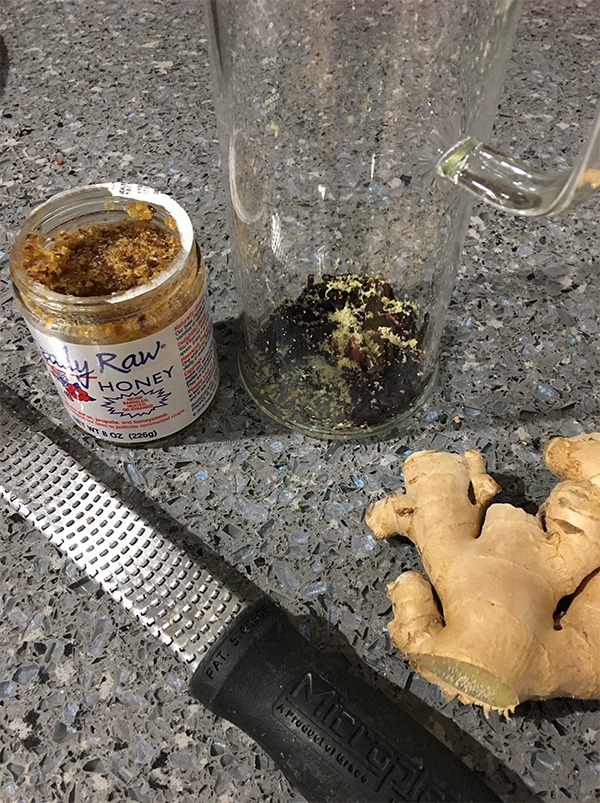 Last winter, my husband got “a cold” when he flew to visit his family for Christmas. I made him a comfort rescue tea that I make when we are under the weather and I think you will love it.
Last winter, my husband got “a cold” when he flew to visit his family for Christmas. I made him a comfort rescue tea that I make when we are under the weather and I think you will love it.
What you will need:
- A handful of Hibiscus flowers
- Frozen Ginger Root
- Microplane
- Raw honey
- Hot (filtered) water
Using a heatproof glass mug, add in the Hibiscus flowers, raw honey, and boiling hot water. Grate as much of the frozen ginger root as you like (remember it has a bite) into the mug and stir to help the honey disperse evenly. Enjoy!
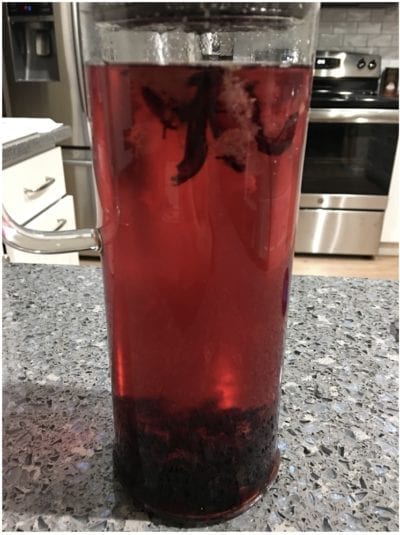
Dr. Kines’ Favorites
Buy Your Organic Herb Teas Now
Herb teas are so popular and so beneficial in our community, and now you see why. But I know, that sometimes it is hard to get everything you need under one roof, and when you are already EBV-exhausted, I have learned that it is helpful to do whatever I can to save you a physical stress of a shopping trip. That is why, I am happy to partner with a phenomenal site called I-Herb. For one thing, it is global! All you have to do is to pick your country. I also love the variety of organic herbal teas, green teas, and even black teas – both loose and in tea bags, from some of the most reputable brands.
You can start by getting Dr. Mercola’s super smart and practical collapsible tea infuser!
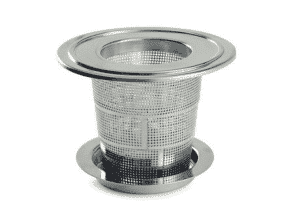
Here are some of my favorites (note that the selection will vary depending on your country and that these are just examples). For example, you can pick organic Tulsi teas in bulk. Tulsi is holy basil and is very helpful for stress!
How about loose hibiscus or green teas?
And of course, there’s the Traditional Medicinals brand of organic herb teas in tea bags, if you still want to use those.
Buy Your Organic Herb Teas Now

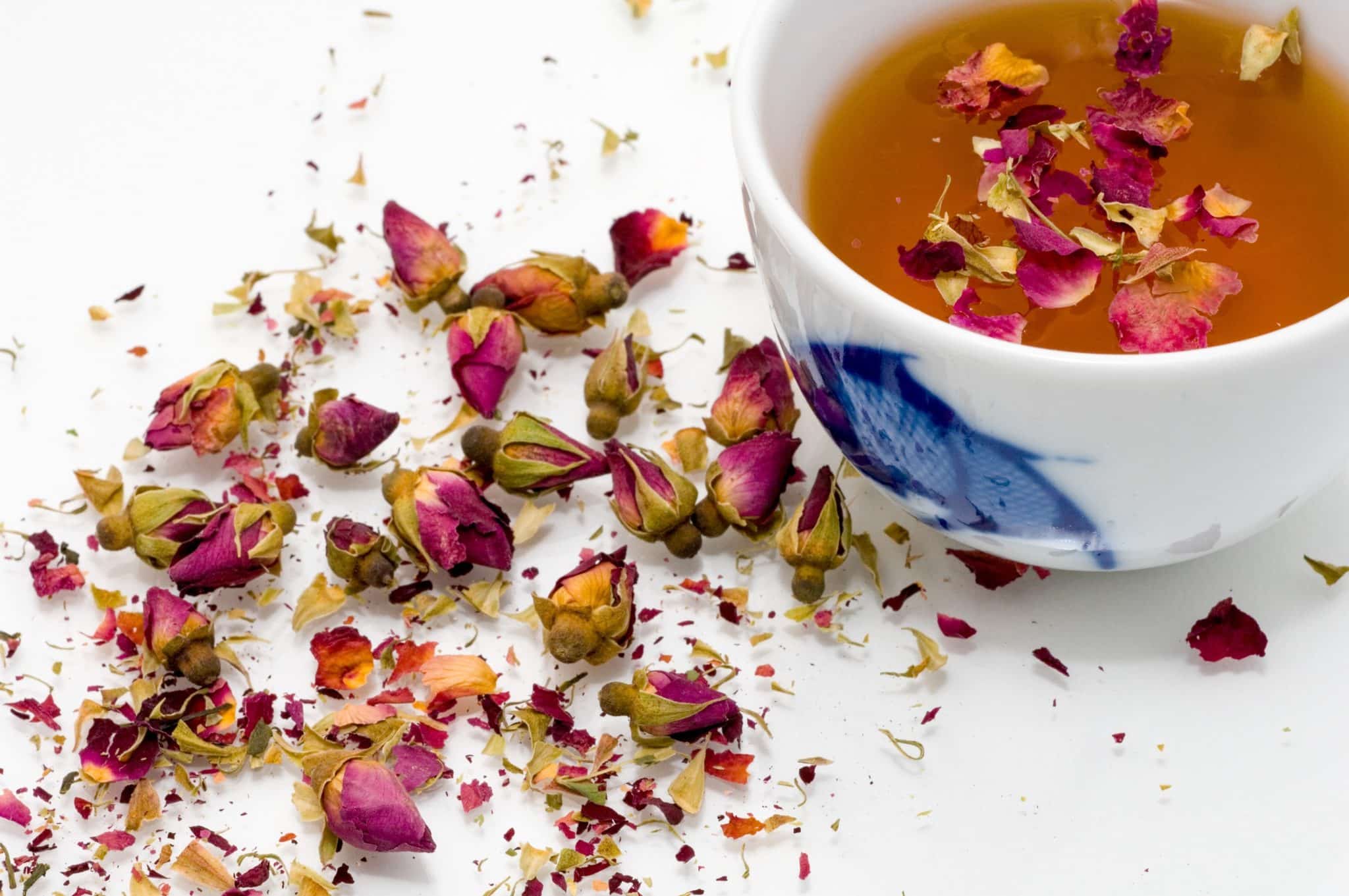
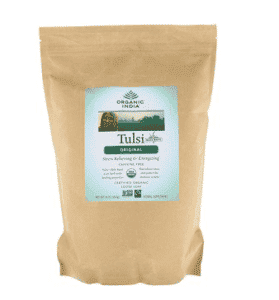
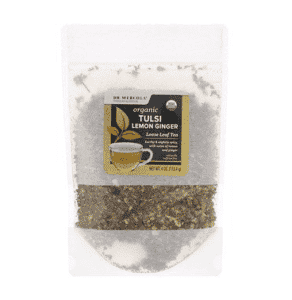
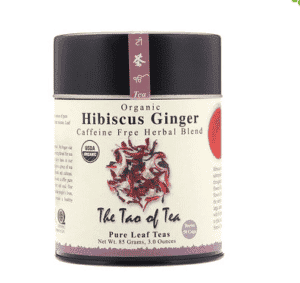
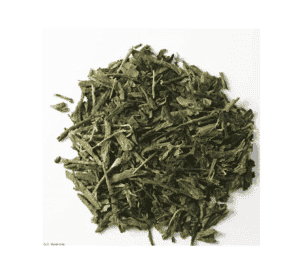
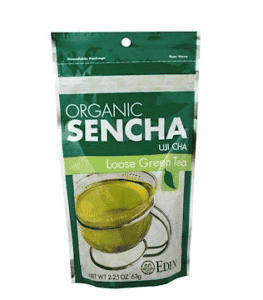
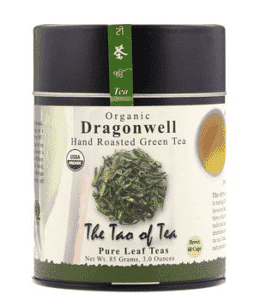
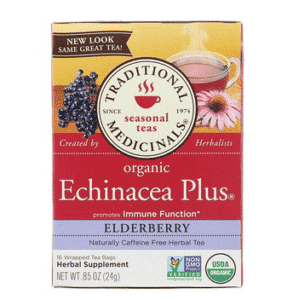
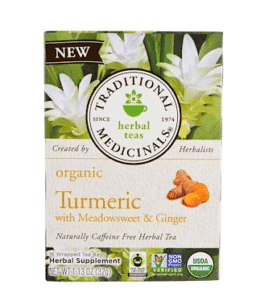
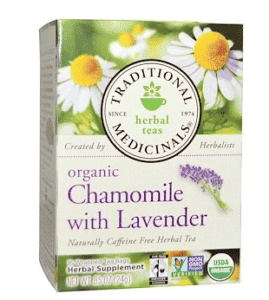
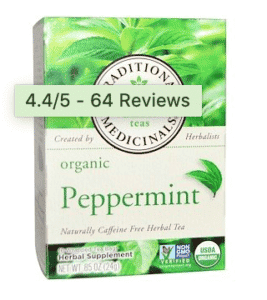
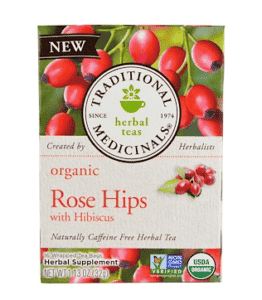
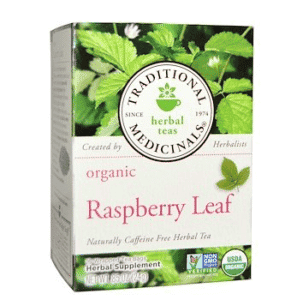
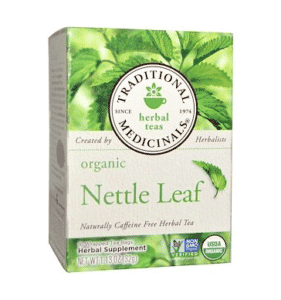
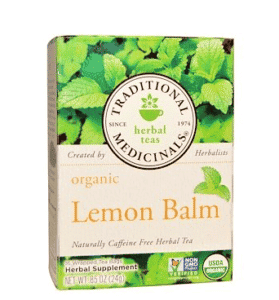
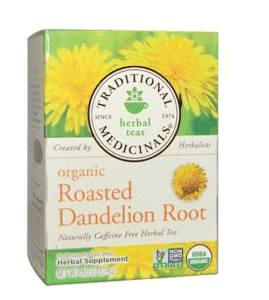
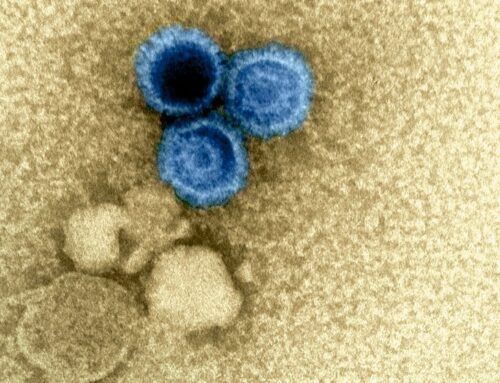
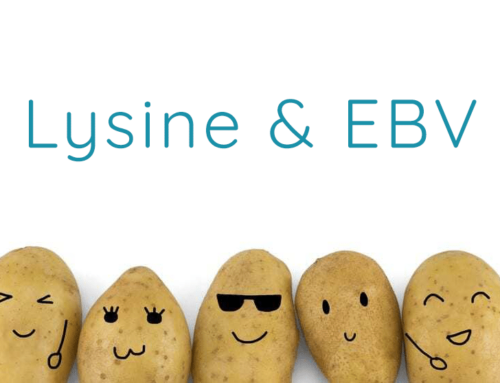

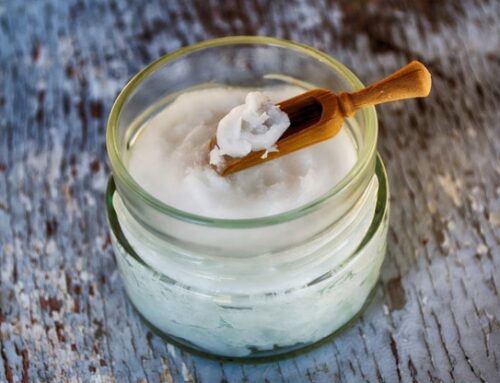
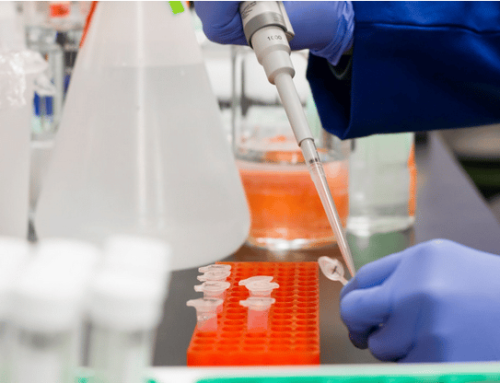
I follow the Mensah Medicinal Clinic’s research on high copper toxicity, and they state that many red teas, such as Red Clover, have copper & can thus raise copper levels. Are you familiar with this claim? I have a difficult time keeping my copper level in check, so do not want to make it worse while I am trying to get better from viruses & infections.
I am not familiar with these studies. The most important thing to find out is why you have copper toxicity and remove the source. Of course, if they verified that even a tea can have detrimental copper levels, you should stay away from that tea.
I was diagnosed with CEBV the first of April and still severely struggling with it. I’ve changed my whole diet being gluten-free, dairy free, caffeine free, sugar free and no sugar substitutes. Taking tons of supplements and drinking herbal teas. I do eat lots of fruits which has natural sugar, but I was wondering about raw honey.
Can honey be used with EBV?
Congratulations on all the things you have already done. And it is a yes for raw honey!